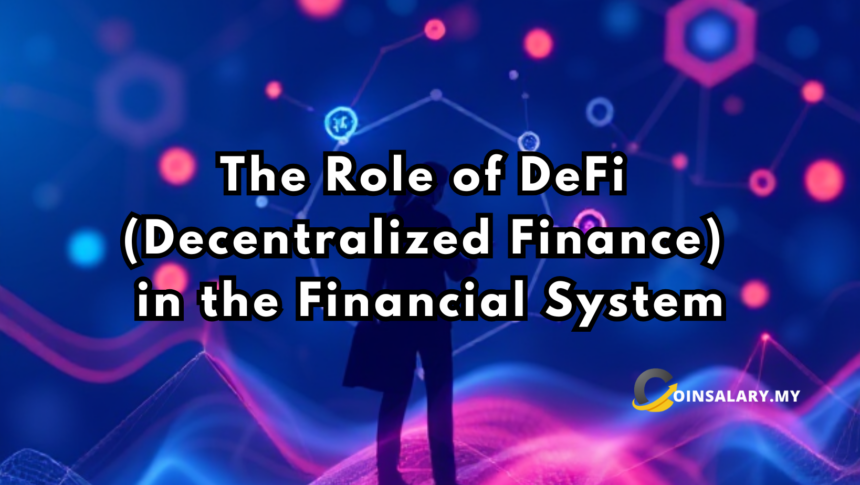Decentralized Finance, commonly referred to as DeFi, represents a paradigm shift in the financial industry. By leveraging blockchain technology and smart contracts, DeFi aims to provide open, permissionless, and decentralized alternatives to traditional financial systems. This innovative approach has the potential to democratize access to financial services and revolutionize how people interact with money.
What is DeFi?
DeFi encompasses a wide range of financial applications built on blockchain platforms, particularly Ethereum. Unlike traditional finance, which relies on centralized institutions like banks and governments, DeFi operates through decentralized protocols and smart contracts. These contracts are self-executing agreements coded into the blockchain, eliminating the need for intermediaries.
Core Features of DeFi
- Transparency: Transactions and protocols in DeFi are visible to anyone on the blockchain, fostering trust and accountability.
- Permissionless Access: Anyone with an internet connection can access DeFi services without the need for approval from a centralized authority.
- Interoperability: DeFi platforms often interact seamlessly, allowing users to combine different services for customized financial solutions.
- Automation: Smart contracts automate processes like lending, borrowing, and trading, reducing operational inefficiencies.
Key Applications of DeFi
- Lending and Borrowing: DeFi platforms like Aave and Compound allow users to lend their assets to earn interest or borrow funds by collateralizing their holdings. These services are available 24/7 without requiring credit checks or extensive documentation.
- Decentralized Exchanges (DEXs): DEXs such as Uniswap and SushiSwap enable users to trade cryptocurrencies directly with one another. These platforms eliminate the need for intermediaries, reducing costs and enhancing privacy.
- Stablecoins: Stablecoins like DAI and USDC are pegged to traditional currencies, offering a stable store of value in the volatile cryptocurrency market. They are integral to many DeFi applications, serving as a medium of exchange and a unit of account.
- Yield Farming and Liquidity Provision: DeFi users can earn rewards by providing liquidity to pools or participating in yield farming, where they stake their assets to generate returns.
- Insurance: DeFi insurance platforms like Nexus Mutual offer coverage against risks such as smart contract failures or exchange hacks, increasing user confidence.
Benefits of DeFi in the Financial System
- Financial Inclusion: DeFi eliminates barriers to entry, providing financial services to the unbanked and underbanked populations worldwide.
- Reduced Costs: By removing intermediaries, DeFi lowers transaction fees and operational costs, making financial services more affordable.
- Innovation and Customization: DeFi fosters innovation by allowing developers to create new financial products and services. Users can customize their financial strategies by combining multiple protocols.
- Enhanced Security: Blockchain technology ensures that DeFi transactions are immutable and transparent, reducing fraud and improving data security.
Challenges and Risks
Despite its promise, DeFi faces several challenges:
- Regulatory Uncertainty: Governments worldwide are grappling with how to regulate DeFi while preserving its decentralized nature.
- Smart Contract Vulnerabilities: Coding errors in smart contracts can lead to exploits and significant financial losses.
- Market Volatility: The value of assets in DeFi ecosystems can be highly volatile, posing risks to users.
- Scalability Issues: High transaction fees and slow processing times on popular blockchains can hinder DeFi adoption.
The Future of DeFi
DeFi is still in its infancy, but its growth trajectory is promising. As technology evolves and solutions to current challenges emerge, DeFi has the potential to:
- Transform global financial systems by making them more inclusive and efficient.
- Enable new financial models and innovations, such as decentralized autonomous organizations (DAOs).
- Foster economic resilience by decentralizing risk and reducing reliance on traditional financial institutions.
Conclusion
Decentralized Finance represents a groundbreaking shift in how financial systems operate. By leveraging blockchain technology, DeFi offers transparent, accessible, and efficient alternatives to traditional financial services. While challenges remain, the continued development and adoption of DeFi have the potential to create a more inclusive and resilient financial ecosystem for all.




